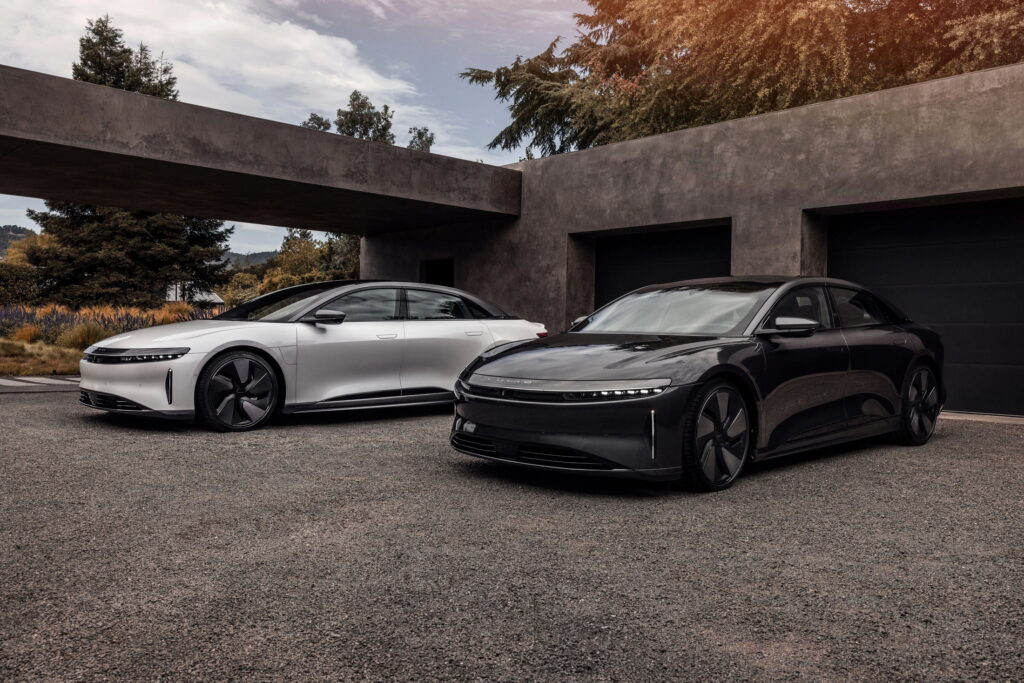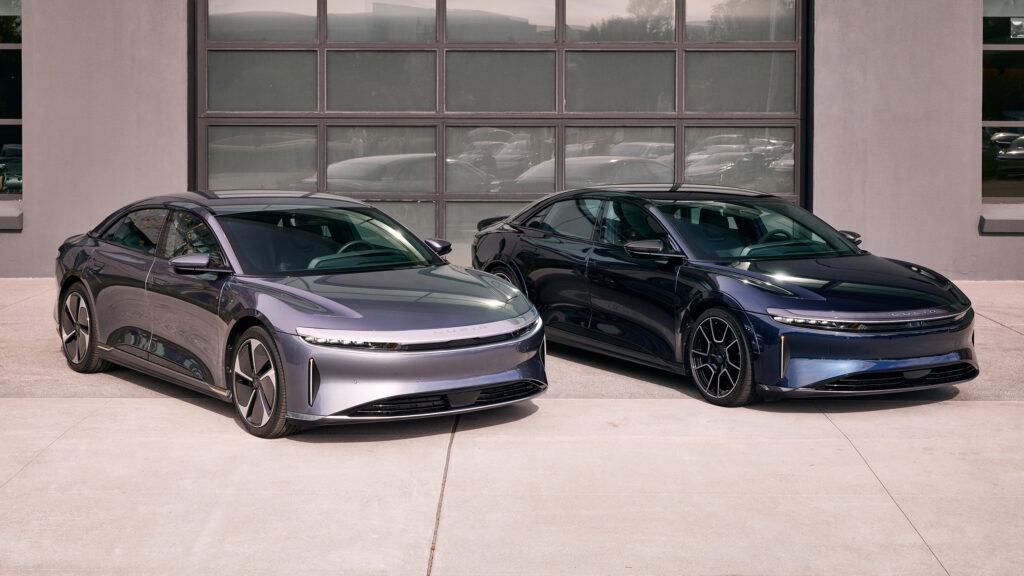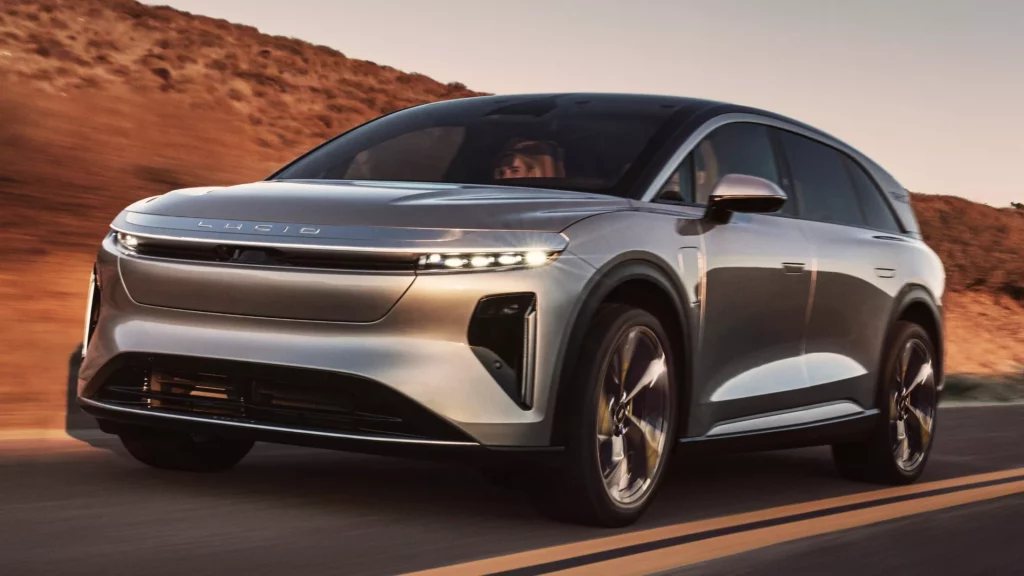- The oil-rich nation has invested roughly $8 billion into the marque over recent years.
- Saudi Arabia owns roughly 60% of Lucid, and the carmaker is building a factory in the country.
- Lucid’s planned third model, a mass-market EV, will be made in the Saudi plant.
The Saudi Arabia Public Investment Fund (PIF) is investing an additional $1.5 billion into Lucid, giving the electric car manufacturer vital money to fund ongoing capital expenditures and working capital.
The investment, made through PIF affiliate Ayar Third Investment Company, consists of $750 million of convertible preferred stock via private placement and a $750 million unsecured delayed draw term loan facility. This latest investment comes just a few months after a separate $1 billion cash injection from the Saudis, which means they have now invested around $8 billion into the firm and own roughly 60% of it.
Read: Lucid Confirms New $48,000 Mid-Size SUV For Late 2026
These additional funds come at an important time for Lucid. While the Air has proven to be one of the finest luxury sedans on the market and is loaded with innovative features and technologies, it remains a premium offering and has not sold in significant numbers. Lucid is hopeful that its upcoming Gravity SUV will contribute to a jump in total sales and is currently preparing its factory in Arizona to begin production of the new model.
However, Lucid’s most important model is due to arrive in late 2026. This new vehicle will be a mid-size SUV priced below $50,000, aimed to compete against the likes of the Tesla Model Y, Cadillac Lyriq, and Ford Mustang Mach-E. This model will be underpinned by a new mid-size platform that could support more than one model.

Limited other details about the entry-level model are known, but Lucid chief executive Peter Rawlinson has confirmed it will have a smaller battery than the Air and Gravity, noting that one of the critical factors in building a cheaper EV will be to use a smaller battery pack.
Unlike the Air and Gravity, Lucid’s third model will not be produced in the United States. Instead, it will be built at its AMP-2 facility in Saudi Arabia and exported internationally.




